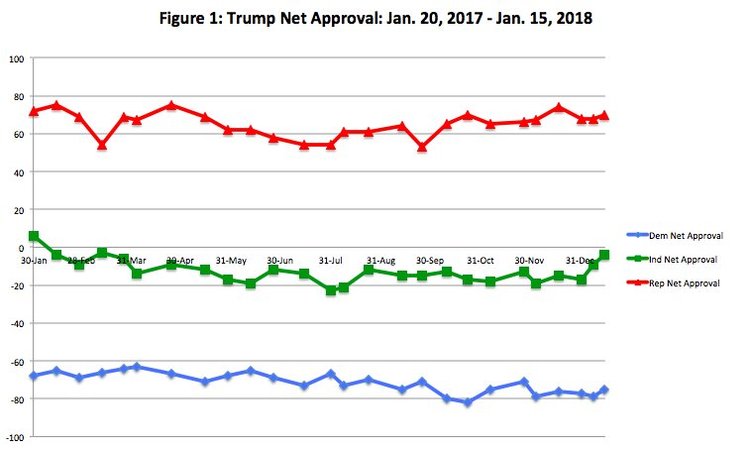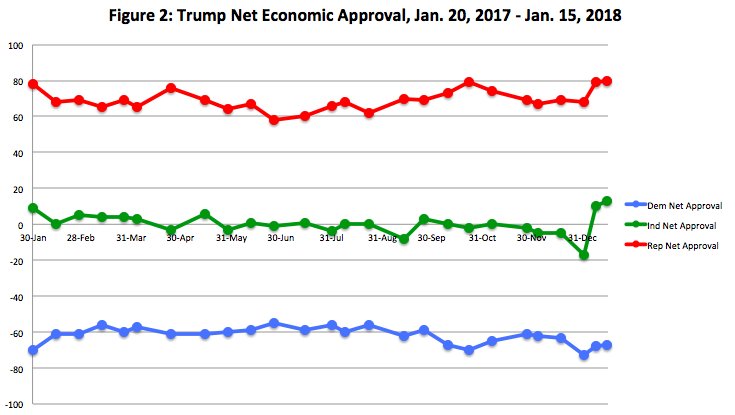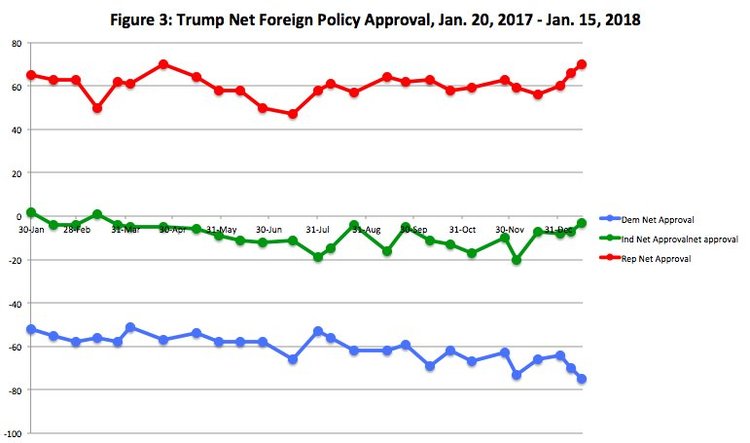Donald Trump won the presidency on the back of strong support from Republicans and a substantial margin among Independents. After the failure to repeal the Affordable Care Act, his status declined among Independents and, to a lesser extent, Republicans. Inside the White House, the hope was that a September pivot to tax reform would turn things around for the president. It did not happen immediately.
When asked in mid-September about his handling of the tax issue, the YouGov weekly poll had 70 percent of Republicans saying that they approved of his performance and 34 percent of Independents saying they approved. By early December, the numbers were worse among Independents, with only 30 percent approving and 47 percent disapproving Trump’s performance. But as the bill came closer to passage, his approval rating increased. Our Dec. 25 survey after Trump signed the bill into law, showed an uptick among Independents, and Republican support surpassing 80 percent.
This surge on tax policy appears to have carried over into the other areas we’ve followed since Inauguration Day. We tracked partisan and Independent overall approval of the president, in addition to opinion on his handling of the economy and foreign policy. (The metric we use is net approval -- the percentage who approve of the president’s performance in a particular area, minus the percentage who disapprove).
When Trump’s took office in January he had a +72 percent net approval rating among Republicans, a +6 percent rating among Independents, and -68 percent rating among Democrats. By summer’s end, those numbers had declined to +61, -21 and -73 percent, respectively. Significantly, his economic approval ratings hovered nearly 20 points above his overall ratings among Republicans and Independents, suggesting that voters might be willing to separate his handling of the economy from his general comportment in office. By the beginning of December, however, Trump’s economic rating had begun to resemble his overall numbers, falling to -5 percent among Independents, as compared to 0 percent in August 2017, and +9 percent in January 2017. On the subject area generally most important to Americans, Trump was losing ground.
Since the passage of the tax act, Trump has seen a reversal of fortune among Independents, and to a lesser extent among Republicans. On economic performance, he’s moved the dial upward, especially among Independents, and reduced his net negative ratings on the overall job approval to single digits.
Figure 1 shows Trump’s overall ranking from Jan. 20, 2017 though Jan. 15, 2018, and Figure 2 shows his ranking on the economy question over the same time period. His approximately -20 net approval rating among Independents on Dec. 4 has been reduced to single digits. Similarly, his net economic approval among that group has increased from -5 to +13 percent. Among Republicans, those numbers have jumped to +70 percent and +80 percent, respectively. Trump’s economic rating is now higher than it was when he took the oath of office in 2017 among Republicans, Independents, and even Democrats. Trump’s foreign policy net rating has increased over the past two months, from -20 to -3 percent among Independents, and from 59 to 70 percent among Republicans (see Figure 3).



While we cannot definitively say that the successful passage of the tax act directly caused the rise in Independents’ economic and overall evaluations of the president, the timing suggests a relationship. If the two truly are related, Democrats may want to rethink plans to campaign heavily against the tax bill. That strategy might drive crucial Independent voters back into Republican arms. This is especially true if, as The Tax Policy Center estimates, 80 percent of Americans will see a tax decrease in early 2018.
